 | 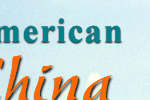 |  |  |
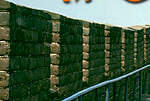 | 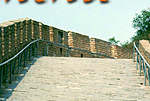 | 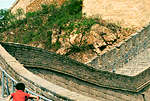 | 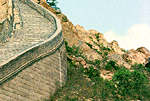 |
 | 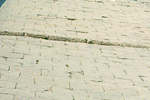 | 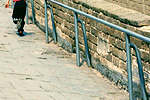 | 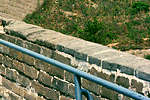 |
 | 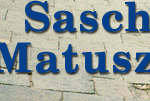 |  | 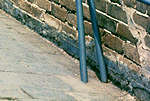 |
|
September 6, 2003 Let's Hope Nobody Calls the US's Bluffby Sascha Matuszak |
|
It is significant that US Treasury Secretary John Snow arrived in Beijing on the heels of the six-party talks concerning peace on the peninsula. Snow arrived to discuss the undervalued yuan, which may be held up during next year's elections as the dead rat fouling up Sino-US relations. The yuan is pegged to the dollar and does not reflect the real situation – a strengthening of the yuan would hurt Chinese exports and ease a little of the pressure on US manufacturers, so they say. As it stands now, the Chinese economy is blowing up the competition, growing at somewhere between 8 and 10 percent and Chinese companies are forecasting ridiculous growth over the next three years. Chinese products that mirror big foreign brands (Pringles, Coca Cola, McDonalds even KFC) are hogging all the room on the shelves in the local (French-owned) Carrefour and sell at half the price. These cheap, decent goods are why China faces hundreds of "dumping" cases at the WTO and why Snow arrived to ask for a little slack. Snow left Beijing with a promise from the Chinese to reevaluate sometime deep into the future when China is good and ready. China has also said that any pressure to reevaluate might cause a drop in the steady purchase of US Treasuries. Just before Snow left, Chinese Vice Foreign Minister Wang Yi mentioned briefly in the Philippines that the US had been the "main obstacle" during the talks. After the Russian and the S. Korean delegations chimed in, the belligerent squawking coming from N. Korea began to make (slight) sense. The US is the pivotal player in these talks – during and after the talks, the US remained very quiet, releasing muted public statements on "further talks" and a willingness to talk more about "more for more." While the DPRK hollered "useless," the US made as if all efforts had been made to sit and negotiate. More for more seems to me the mantra, but no one is prepared to give. Vice Foreign Minister Wang Yi's comments, against the backdrop of the Philippines' own currency problems, seem to be a double rebuff, aimed at US intractable behavior at the negotiating table and arrogant behavior in the marketplace. Judging by the DPRK's (rather tired) response, the US probably did promise nothing (as usual) until N. Korea completely dismantles its nuclear program. If there truly is a line of strategy in the Bush Administration that entails N. Korea calling the US bluff, in some horribly insane act of provocation and/or bloodshed, then Lord help us all. Likewise concerning the reevaluation of the yuan: if the US really does push the envelope and China responds in (economic) kind, the two may find themselves in a world of hurt and taking everybody else down with them. China came from where the DPRK is. Patriotism with a fascist mask helped sustain China during the years of chaos following actual liberation; it took an old cadre twice brought back from the dead to steer the nation back. The DPRK has no such cadre: just fanatical patriotism and stifling fascism. And the fervor driving the expansion of a US Empire lies in a calm, patriotic belief that "we are right." The calm air of superiority the US has been affecting throughout the talks should be reflected in superior acts of graciousness, not childish games of chicken. Fascism can die, but patriotism only bleeds. Counting on these nations to fold is senseless. –Sascha Matuszak
Please Support Antiwar.comSend contributions to Antiwar.com or
Contribute Via our Secure Server Your contributions are now tax-deductible
|
Sascha Matuszak
is a teacher living and working in China. His articles have appeared
in the South China Morning Post, the Minnesota Daily,
and elsewhere. His exclusive Antiwar.com column (usually) appears
Fridays. Archived columns Let's
Hope Nobody Calls the US's Bluff The
Best Possible Course for North Korea Crouching
China, Paper Tiger Democracy
with Chinese Characteristics Powers
Behind the Thrones Know
When to Lie, Know When to Shoot Straight Rumors
and Leavetakings 'Americans
Like War, Huh?' A
Beautiful Morning for a War Soft
Power Moves Abroad The
Safest Place in the World Smiles
and Nods and Handouts China:
Straddling the Fence Just Right Merry
Christmas from China Don't
Believe the Hype Jiang's
Theory Is a Smokescreen 'We
Make You Play Bad Card' The
Future of East-West Rapprochement Tiananmen's
Legacy: The Forgotten Rebellion Deciphering
the Chinese Smile Why
China Can Disregard US Anger Arming
the World: What the US Fears 1.3
Billion Problems For China China's
New Post-9/11 Status
Sweep 'Em Off the Streets
Chinese Embrace Progress China's
Afghan Agenda New
War May Reveal New Superpower, Part II New
War May Reveal New Superpower A
Chance for a New Friendship? Cheating
as a Way of Life China's
Internet Generation Free
Markets or Supermarkets Sailing
Towards World Significance China's
Youth Revolution |
